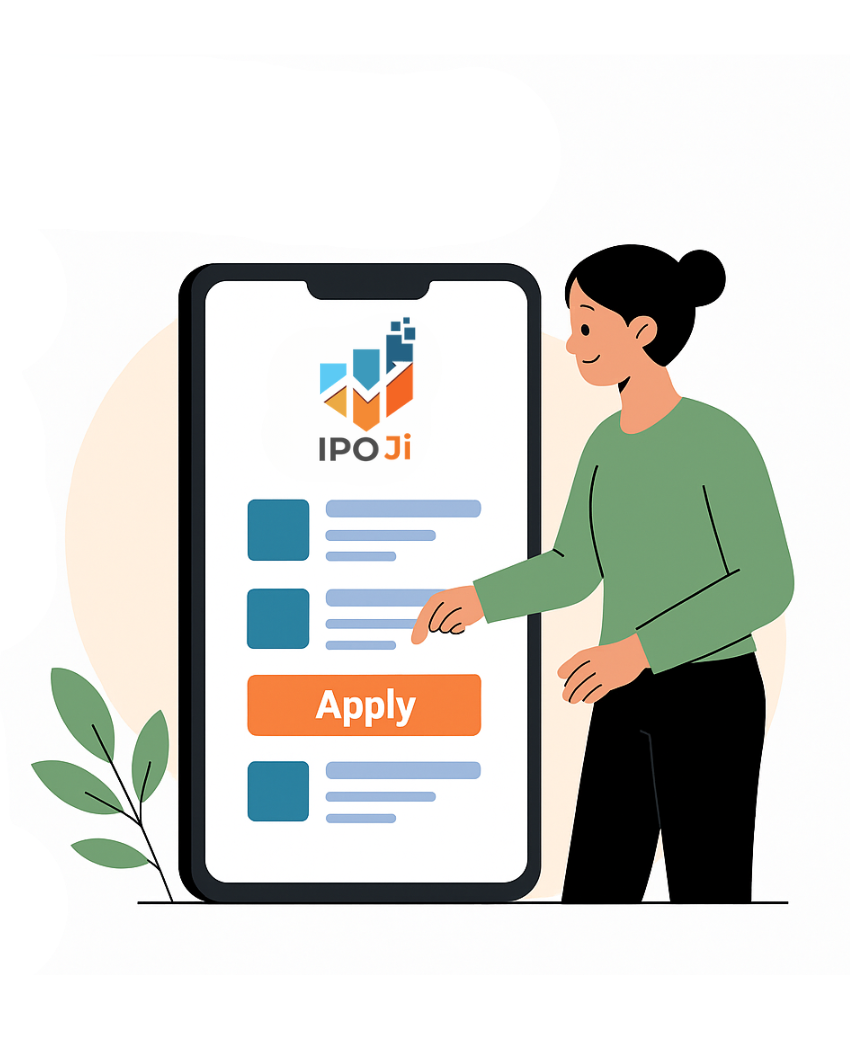Current IPO in India 2025

Offer Date: Jan 30, 2026 - Feb 3, 2026

Offer Date: Feb 4, 2026 - Feb 6, 2026
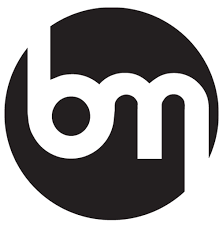
Offer Date: Feb 4, 2026 - Feb 6, 2026
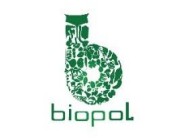
Offer Date: Feb 6, 2026 - Feb 10, 2026
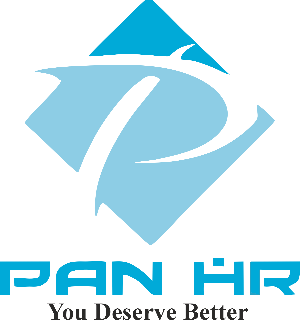
Offer Date: Feb 6, 2026 - Feb 10, 2026

Offer Date: TBA - TBA
Upcoming IPOs

Listed IPOs
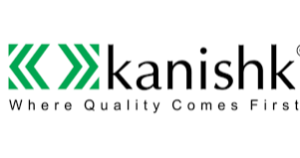
Offer Date: Jan 28, 2026 - Jan 30, 2026
Listing Date
2026-02-04List Price
N/AOffer Price
73Lot Size
1600Subscription
No of Apps.: 1167 | 1.10 times
Offer Date: Jan 28, 2026 - Jan 30, 2026
Listing Date
2026-02-04List Price
N/AOffer Price
122-129Lot Size
1000Subscription
No of Apps.: 811 | 1.91 times
Offer Date: Jan 28, 2026 - Jan 30, 2026
Listing Date
2026-02-04List Price
N/AOffer Price
116-123Lot Size
1000Subscription
No of Apps.: 152725 | 166.81 times
Offer Date: Jan 27, 2026 - Jan 29, 2026
Listing Date
2026-02-03List Price
64.0Offer Price
61-64Subscription
No of Apps.: 5021 | 17.82 times
Offer Date: Jan 22, 2026 - Jan 27, 2026
Listing Date
2026-01-30List Price
144.0Offer Price
140-144Subscription
No of Apps.: 1711 | 5.49 timesMainboard IPOs
Current Mainboard IPOs for This Week and the Upcoming Week: Fractal Analytics IPO, Aye Finance IPO, Skyways Air Services IPO, Gaja Alternative Asset Management IPO, Clean Max Enviro Energy Solutions IPO, PNGS Reva Diamond Jewellery IPO, Indo-MIM IPO
Upcoming Mainboard IPOs Expected in the Coming Months of This Year and Next Year: Sunshine Pictures IPO, Hero Motors IPO, Manipal Payment & Identity Solutions IPO, Veritas Finance IPO, SK Finance IPO, Prestige Hospitality Ventures IPO, Milky Mist Dairy Food IPO, PhonePe Limited IPO, CMR Green Technologies IPO, Pranav Constructions IPO
Recently Listed Mainboard IPOs: Shadowfax Technologies IPO, Amagi Media Labs IPO, Bharat Coking Coal IPO, Gujarat Kidney & Super Speciality IPO, KSH International IPO
SME IPOs
Current SME IPOs for This Week and the Upcoming Week: CKK Retail Mart IPO, Grover Jewells IPO, Brandman Retail IPO, Biopol Chemicals IPO, PAN HR Solutions IPO, NFP Sampoorna Foods IPO
Recently Listed SME IPOs: Kanishk Aluminium India IPO, Accretion Nutraveda IPO, Msafe Equipments IPO, Kasturi Metal Composite IPO, Shayona Engineering IPO
What is an Initial Public Offering?
IPO or Initial Public Offering is a process by which a Private company becomes a Public Company. The company becomes 'Public' when it starts offering its shares to the Public for the first time. Selling shares is like giving a stake of the company to the shareholders.

Types of IPOs
Mainline IPOs
Mainline IPOs are the process by which large companies come out with an offer of equity on main stock exchanges like NSE and BSE.
SME IPOs
Through these IPOs, smaller companies are allowed to go public and to source finance by getting listed on markets such as the NSE and the BSE.
Company's Motive Behind Launching an IPO
A company is about to unleash the huge potential for growth when it accomplishes many milestones through its IPO! Going public offers a business the possibility of raising a significant amount of funds at a higher level to fuel growth, new offerings, and debt repayment. IPOs multiply investment avenues and opportunities for a business, as an IPO lends credibility and authenticity to the firm.

How Does a Company File for an IPO?
Decision to Go Public
Company decides to raise capital through public offering
Selecting Underwriters
Choosing investment banks to help with the IPO process
Due Diligence and Preparation
Comprehensive review of company's financials and operations
Regulatory Filing
Filing required documents with regulatory authorities
Marketing the IPO
Roadshows and presentations to potential investors
Pricing the IPO
Determining the final offer price for the shares
Going Public
Shares begin trading on the stock exchange
Post-IPO Responsibilities
Meeting ongoing reporting and compliance requirements
Categories of IPO Investors
During an IPO (Initial Public Offering), there are four main categories of ipo investors. Retail Investors, popularly known as the general public, are those individual investors who apply for shares in low amounts, that is, 2 lakhs at most. Qualified Institutional Buyers (QIBs) refer to entities such as mutual funds, banks, insurance companies, and foreign institutional investors that are professionally managed to give consideration of investment risks. Non-Institutional Investors (NIIs) or High Net Worth Individuals (HNIs) refer to those individuals who invest above ₹ 2 lakhs but do not fall under the category of QIBs. Finally, there is a reservation of a specific quota for the Employees and Affiliates of the Company in some IPOs, which provides them a favoured chance to invest at a reduced rate or through a reserved section.
Retail Investors
General Public
Qualified Institutional Buyers
QIB
Non-Institutional Investor
NII / HNI
Employees and Affiliates
In some special cases
Methods to Apply for an IPO Online
There are various convenient ways of applying for an IPO through the Internet. One of the most conventional ways is opening a trading account with either a broker or a service provider company, and here, the investors can personally apply for IPOs from the broker’s web interface. Another popular option is the UPI (Unified Payments Interface) practice, whereby the investors can apply for IPOs through the likes of BHIM, Google Pay, PhonePe, or broker-based UPI-linked systems to facilitate fast processing of payment authorization. In addition, the investor can use net banking through the ASBA (Application Supported by Blocked Amount) mode, which is provided by most of the banks. This is a method of keeping the IPO application amount in the investor’s bank account safe till the allotment is confirmed for hassle-free and secure transaction procedures.
Through a Trading Account
With a Broker or Service Providers
Through UPI Method
Quick and convenient application
By Net Banking
By ASBA method
Easiest way to APPLY IPO using ipoji.com or IPO Ji App
FAQs
Ans. To a company, an IPO is the most exciting milestone: listing on the stock exchange! That's when a privately run business opens its doors to public investors who get a chance to buy some stock and become part-owners of the business. That very transformation lets them not only refill their business with fresh capital, hence its fuel, but also increase brand value, credibility, and market presence. To investors, the IPO represents the golden opportunity for participation in ground-floor, potentially very high-growth ventures. That is the time when dreams of expansion, innovation, and wealth creation all come together in an overactive mix to create an atmosphere of excitement within the financial world.
Ans. Anybody can invest in an IPO, but the type of process involved and its eligibility may differ in certain cases depending on the form of investor and the respective IPO. The five primary categories of investors include:
- Retail Investors: This category constitutes individual investors who are basically able to purchase shares of an IPO through a brokerage account. Most often, they would have to meet certain criteria that the brokerage firm sets down, which can be a minimum account balance or trading history.
- Institutional investors: These are large institutions, such as mutual funds, hedge funds, pension funds, and insurance companies. They get preferential treatment buying into IPOs, given their buying power and influence.
- Accredited Investor: A high-net-worth individual that meets some predefined criteria of income or net worth thresholds; would normally have a wider range of investment opportunities, which could include IPOs.
- Employees and Affiliates: Sometimes the company going public issues shares to their employees, executives, and affiliates at a concessional rate or as part of the benefits package.
- Foreign Investors: Non-residents or international investors can also invest in IPOs if permitted by the regulations and restrictions of their home country and the country of the issuing company.
Ans. The IPO subscription period is the time set for an IPO during which one can apply for the subscription of the shares of a company going public. Normally, it is a few-day window in which any interested investor can place his bid or subscription for the number of shares he wants to buy at a price within the specified range. After the close of the subscription period, the company and its underwriters gauge demand, allot shares to successful bidders, and confirm the offering price. It is a rather tense and euphoric period, for this actually seals the deal for initial investor interest and lays the ground for the company to launch onto the stock exchange!
Ans. To apply for an IPO using IPO Ji, follow these steps:
Ready to invest? Apply now using the IPO Ji App or visit ipoji.com!
Ans. You can get exclusive details of mainline/mainboard upcoming IPOs & Upcoming SME IPOs right here on IPO Ji’s Upcoming IPOs page.
Ans. Here are some important things to keep in mind while applying for an IPO:
- Research the Company
- Check the Valuation
- Understand Market Conditions
- Know Subscription Status
- Review the Red Herring Prospectus (RHP)
- Set Realistic Bids
- Diversify Your Investments
- Avoid Multiple Applications
- Keep Documents Ready
- Track Allotment Status
- Be Aware of Post-IPO Responsibilities
- Consult a Financial Advisor
Ans. You can check allotment status here on IPO Ji website/App.



